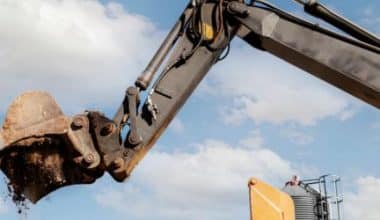Remote work is something the world has grown more accustomed to in the wake of the pandemic but for construction workers, remote construction sites (sometimes in the middle of nowhere) have always been a part of the job. On these sites, where workers might not be familiar with their surroundings, safety is vital. The construction sector is one of the most dangerous in the world so all considerations need to be made and taken very seriously.
There were over 81,000 accidents reported in 2020 alone and it’s up to the business owners and managers to take responsibility and ensure all needs are met. With that in mind, here are some of the more serious safety considerations for all managers and business owners in the construction industry.
Communication failure
More often than you might think, the root cause of an accident is a breakdown in communication. In remote areas, there might be blind spots for cell reception, which means that workers might not be able to call for help in the event of an accident. All workers should be given appropriate contact numbers to call in case of a serious accident and, if reception is limited, they should be supplied with satellite phones or roaming SIM cards.
Navigation
A remote construction site is often going to be in an isolated and unfamiliar location that could be difficult to find. If workers get lost in the middle of nowhere it can prove disastrous. Employees must, therefore, ensure all workers are equipped with GPS and are given relevant training on navigating challenging terrain.
Emergency Situations
An emergency could happen at any time on a remote construction site and in remote areas, the dangers are amplified. A power outage, for example, could prove catastrophic and could be brought on immediately by bad weather. If workers are stranded with no heating in a blizzard, it can quickly become a problem. This is why contingencies should be put in place and, in truly remote builds, alternators and generators should always be on standby to fix any power outages quickly and efficiently.
Fatigue
Most construction workers will be used to the rigors of manual labor and everything it entails. But in some remote areas, where there are few other people around for reference, some workers can end up getting lost in the job and working too hard and too long. This might lead to fatigue and that could, in turn, lead to some serious accidents. Employers should enforce regular rest breaks to ensure this never becomes an issue.
Travel
Finally, some of the most tragic accidents happen to and from worksites and this risk is further amplified when remote locations are concerned. Road maintenance in these remote areas is often poor or nonexistent. Always include full breakdown cover for your employees and ensure they have a first aid kit in the car, as well as spare tires and other necessities.






